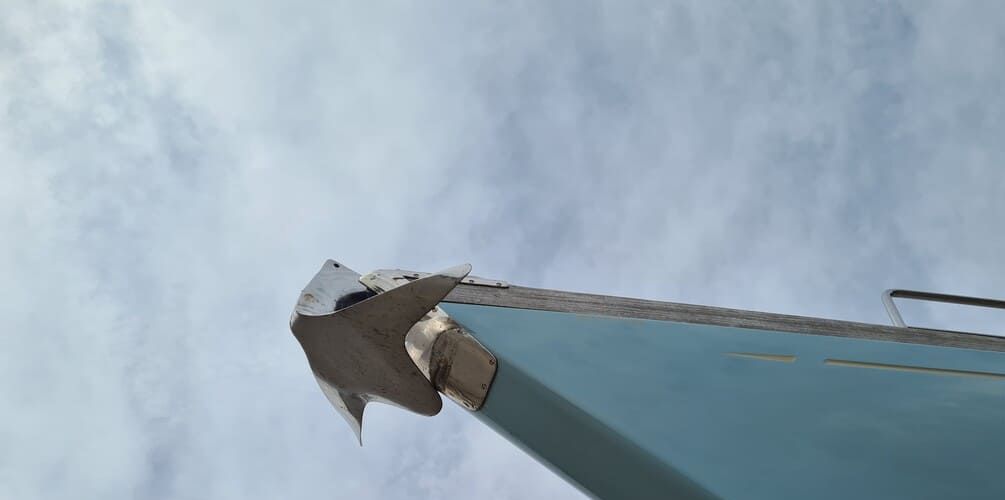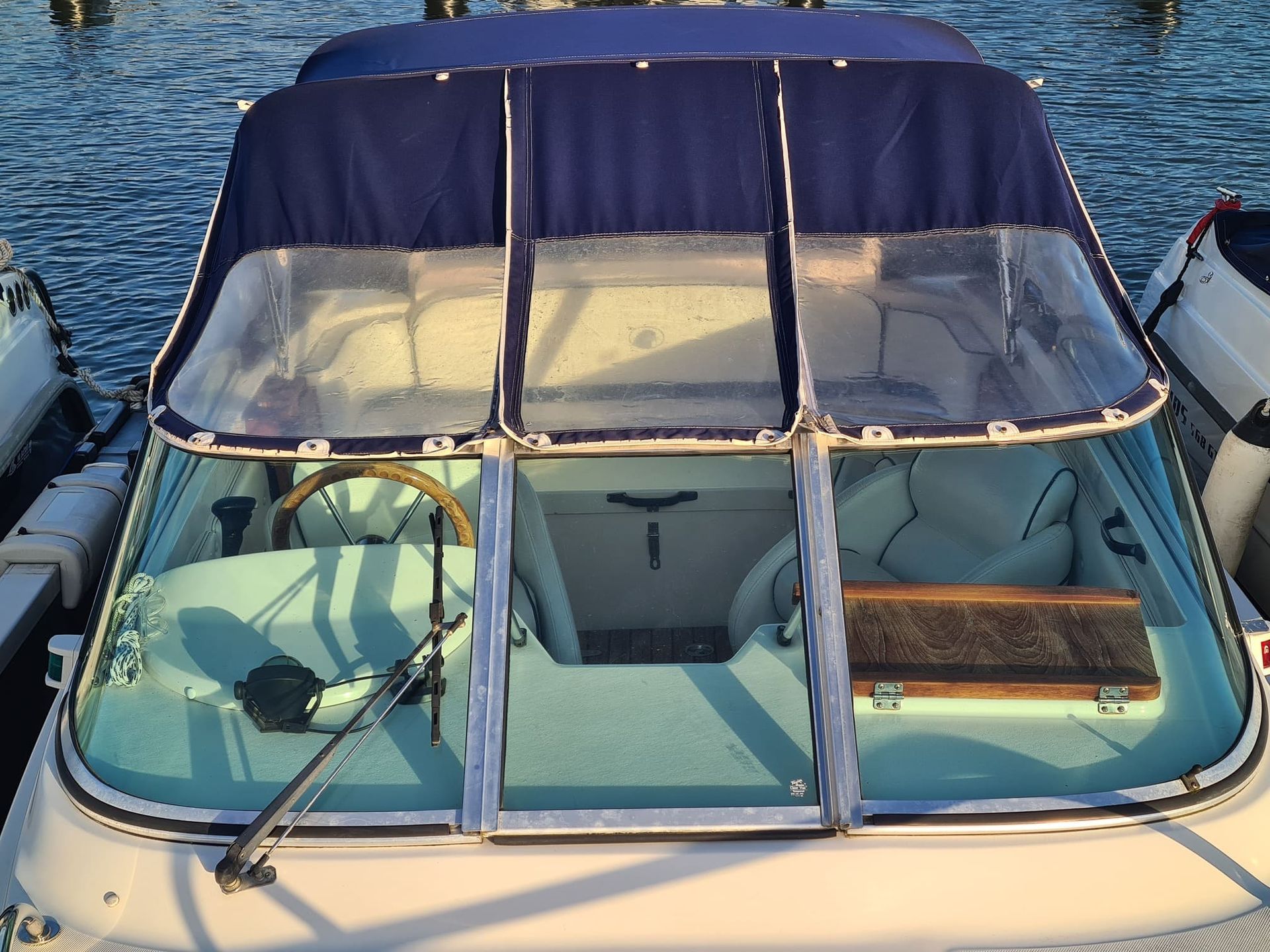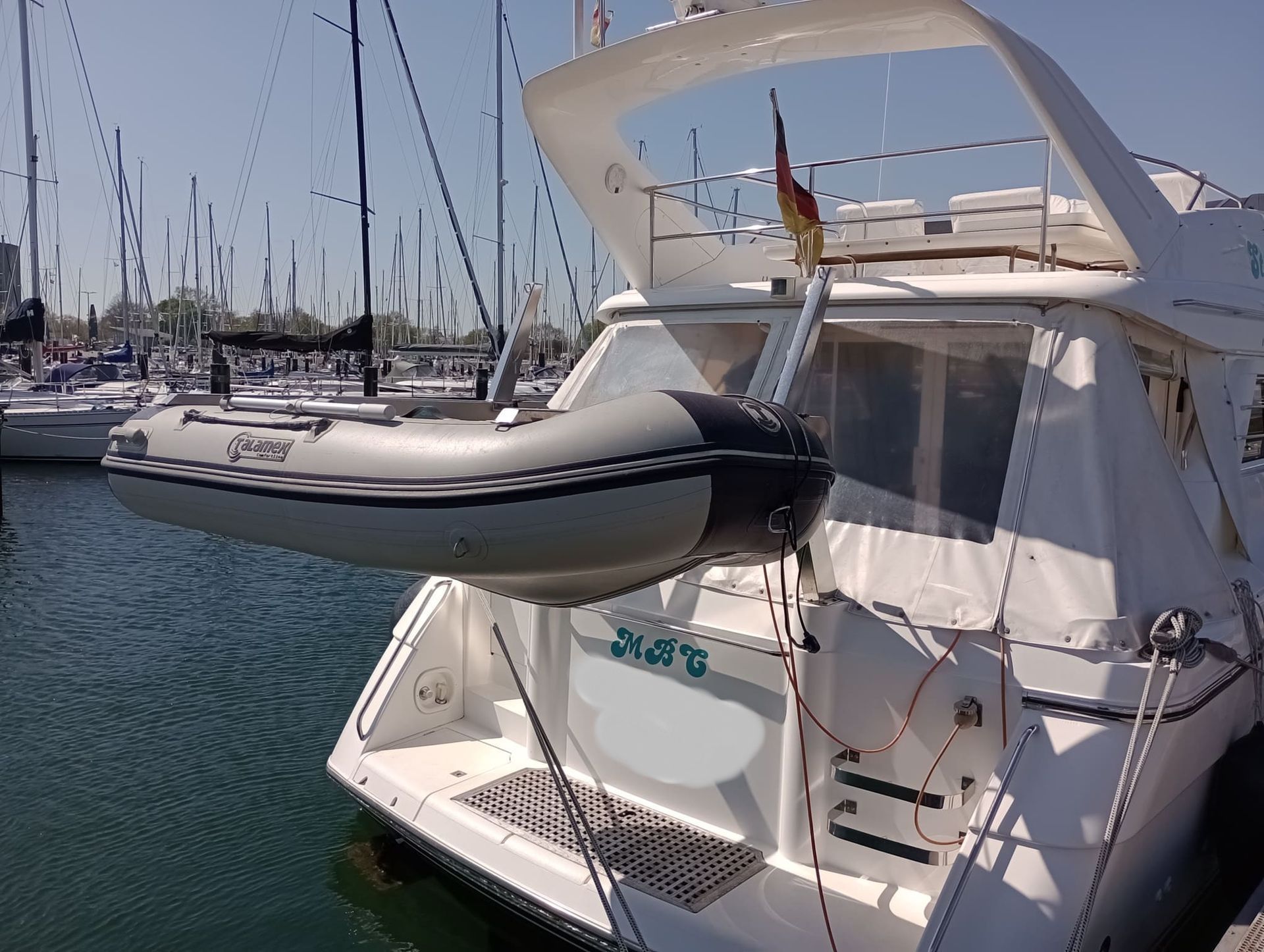Hurricane-Proofing Your Boat in Cape Coral, FL: Essential Tips
You are reading the Cape Coral Boat Mechanic and boat repair Blog
How to Weather the Storm: A Guide to Preparing Your Vessel

Living in Cape Coral, Florida, offers fantastic boating opportunities, but it also comes with the risk of hurricanes. As we've seen with the devastation caused by Hurricane Helene in September 2024, preparing your boat for storms is more important than ever. Here’s how you can hurricane-proof your boat to avoid damage and ensure your safety during storm season.
1. Choose a Safe Location
Where you store your boat during a hurricane is crucial. If your boat is docked, consider moving it to a marina that’s designed for storm protection. Marinas with floating docks that rise with the storm surge offer better protection than fixed docks. If your boat is trailerable, moving it inland is often safer. Secure it to a strong structure and use screw anchors to ensure it doesn't move during strong winds.
2. Secure Your Boat Properly
Whether you’re storing your boat on land or in the water, securing it is essential. If you leave your boat in a marina, double up on lines, making sure they’re long enough to accommodate rising water levels. Use chafe protectors on the lines to prevent them from wearing down. For boats stored on trailers, tie them down to the ground using heavy-duty straps and anchors.
3. Reduce Windage
Minimizing wind exposure, or "windage," can prevent your boat from being blown over or suffering major damage. Remove anything that can catch the wind, such as sails, canvas covers, antennas, and outriggers. Secure or store all items below deck to keep the boat streamlined and less vulnerable to wind forces.
4. Seal Your Boat Against Water
Water intrusion is a major concern during hurricanes. Ensure all hatches, windows, and doors are properly sealed to prevent water from entering. Make sure bilge pumps are in good working condition, and install extra pumps if necessary. Check that your batteries are fully charged and that the pumps are set to automatic mode.
5. Anchor the Boat Properly (If in Water)
If you're unable to remove your boat from the water, anchoring is key to keeping it safe. Use multiple anchors to hold the boat in place. One technique is to set two anchors at 45-degree angles to each other in the direction of the storm's expected path. This reduces the chances of the boat breaking loose. Ensure you use heavy-duty lines and plenty of scope to accommodate tidal surges.
6. Protect the Hull and Dock Area
For boats left in the water, ensure the hull is well-protected from any impact with the dock. Use extra fenders and dock lines to absorb shocks from waves and wind. Securely fasten the boat to cleats, pilings, or other strong points on the dock.
7. Document Your Boat’s Condition
Before the hurricane strikes, take detailed photos and videos of your boat to document its condition. This will be helpful if you need to file an insurance claim after the storm. Ensure that your insurance policy is up-to-date and covers damage from hurricanes, including both hull damage and salvage efforts.
8. Plan Ahead
Timing is everything when preparing for a hurricane. Don’t wait until the last minute to start hurricane-proofing your boat. As soon as a hurricane watch is issued, begin executing your plan. The earlier you start, the more thorough you can be, and the better your chances of preventing damage.
9. Learn from Recent Storms
Hurricane Helene, which hit the southeastern U.S. in September 2024, is a stark reminder of the importance of preparation. In the aftermath, many boat owners in affected regions, including parts of Florida, suffered significant losses due to inadequate storm preparations. By learning from these events, you can take proactive steps to ensure your boat survives the storm.

If something does go wrong despite your best efforts to hurricane-proof your boat, our team of mobile boat mechanics in Cape Coral is here to help. Whether it's post-storm repairs or ensuring your Mercury outboard is functioning properly, we offer fast, reliable service to get you back on the water. Don't hesitate to reach out for emergency repairs or maintenance following a storm—we're ready to assist when you need it most.
Conclusion
Hurricane-proofing your boat requires careful planning and execution, especially in a storm-prone area like Cape Coral, FL. By choosing a safe storage location, securing your boat, reducing windage, and learning from recent hurricanes like Helene, you can minimize the risk of damage and keep your boat safe during hurricane season. Don’t leave it to chance—prepare now, and you’ll be ready when the next storm arrives.
You might also like
Boat mechanics Cape Coral Blog


Experience the convenience of marine mechanic help delivery ;-)
Navigation
Area
Cape Coral, Caloosahatchee, Hancock, Pelican, Burnt Store, Fort Myers, North Fort Myers, Iona, Cypress Lake, McGregor, Bonita Springs, Fort Myers Beach, St. James City, Estero and Sanibel
Working hours
- Mon - Fri
- -
- Sat - Sun
- Appointment Only
All Rights Reserved | Powered by Snapps
